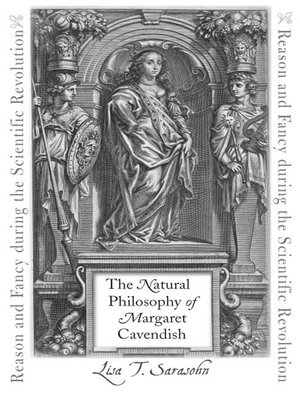The Natural Philosophy of Margaret Cavendish
ebook ∣ Reason and Fancy during the Scientific Revolution · The Johns Hopkins University Studies in Historical and Political Science
By Lisa T. Sarasohn

Sign up to save your library
With an OverDrive account, you can save your favorite libraries for at-a-glance information about availability. Find out more about OverDrive accounts.
Find this title in Libby, the library reading app by OverDrive.



Search for a digital library with this title
Title found at these libraries:
| Library Name | Distance |
|---|---|
| Loading... |
Honorable Mention, Typographic Covers, Large Nonprofit Publishers, 2010 Washington Book Publishers Show
Margaret Cavendish, Duchess of Newcastle, led a remarkable—and controversial—life, writing poetry and prose and philosophizing on the natural world at a time when women were denied any means of a formal education. Lisa T. Sarasohn acutely examines the brilliant work of this untrained mind and explores the unorthodox development of her natural philosophy.
Cavendish wrote copiously on such wide-ranging topics as gender, power, manners, scientific method, and animal rationality. The first woman to publish her own natural philosophy, Cavendish was not afraid to challenge the new science and even ridiculed the mission of the Royal Society. Her philosophy reflected popular culture and engaged with the most radical philosophies of her age. To understand Cavendish's scientific thought, Sarasohn explains, is to understand the reception of new knowledge through both insider and outsider perspectives in early modern England.
In close readings of Cavendish's writings—poetry, treatises, stories, plays, romances, and letters—Sarasohn explores the fantastic and gendered elements of her natural philosophy. Cavendish saw knowledge as a continuum between reason and fancy, and her work integrated imaginative speculation and physical science. Because she was denied the university education available to her male counterparts, she embraced an epistemology that favored contemplation and intuition over logic and empiricism.
The Natural Philosophy of Margaret Cavendish serves as a guide to the unusual and complex philosophy of one of the seventeenth century's most intriguing minds. It not only celebrates Cavendish as a true figure of the scientific age but also contributes to a broader understanding of the contested nature of the scientific revolution.







